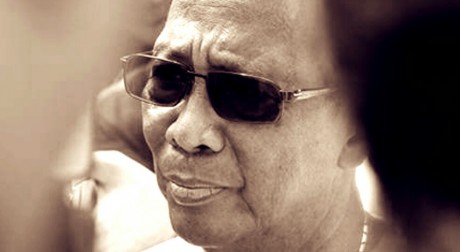For the first time in Philippine history, we have the strong likelihood of having three presidents in a row (Noynoy Aquino, Jojo Binay, and Bongbong Marcos) that bear something similar. They all have repetitive nicknames that sound more like those of clowns than the stuff of legendary statesmen.

Many foreign visitors are actually surprised to discover meeting grown-ups in the Philippines with childish names. There are people who are called “Auntie Baby”, nick-named “girl” or “bhoy”, and even those with “Baby Richard” as the official name on their birth certificates/passports. Why do Filipinos adopt names that resemble those given to pets? Let’s dig deeper into what’s behind this peculiar Filipino naming convention.
Why Filipinos Adopt Cute Funny-sounding Names
- Filipinos are comedians. By nature, Filipinos have a culture where sense of humor is an asset, and being serious/intellectual is looked down on. It’s no surprise that we are the laughing stock of Asia. Our neighbors don’t take us seriously. The frivolous and lighthearted nature of Filipinos permeates the entire society – from our noontime shows to politics. In fact, Philippine news is like one big entertaining comedy show that keeps us laughing. There’s no better way to reflect that national character than through our choice of names. So don’t wonder why our politics is filled with characters with names that resemble clowns and bozos – it’s all part of who we are.
- Filipinos love to be loved. Politics in the Philippines is all about being appealing and likable. Projecting an image of being adorable and sounding like you’re part of the family/masses are all part of the strategy to getting voted into power. Political winnability in the Philippines is not an appeal to reason but rather to emotions and often times the most appalling name-based non-sense: famous relative just died, last name is popular, or nickname produces good vibes. How much easier is it for a politician to get his/her crowd of cultic zombie followers to chant their names in rallies and slogans than through repetitive rhythmic names like “Noy Noy!”, “Jo Jo!”, “Bong Bong!”?
- Filipinos are inefficient. Filipino nick-naming convention is based on the vernacular, and reflects one more aspect of the people: inefficiency. As I said in my very first article here at GRP, Filipino/Tagalog is an inefficient language. It’s a language filled with syllabic repetition. Is there any other language in the world where you can have the same syllable repeating 4x in a simple sentence, like “Bababa na ba?” Foreigners can easily sense that we are a race of simpletons judging from our baby-sounding babble. Our words are filled with having to say things twice: lubaklubak, halohalo, lokoloko (is it because Pinoy coconuts just can’t get things in one repetition?). It is interesting to note that private parts of the human anatomy are given the honor of this syllabic repetition (ti, pi, king, bol, kili)x2. Inefficient people will elect those who represent themselves – that’s the true essence of democracy – right?
What’s in a name?
In the Philippines, a good name is difficult to come by; and if you’re heir to a name that represents dignity and honor, consider yourself to be fortunate (the lucky few). In a country where one’s name can spell the difference between winning and losing, success and failure, getting a loan/job or not, it is important to choose our names and those of our children wisely, and preserve its sanctity/trust.
Africans like to name their children after words that have meaning: Marvelous, Radiance, Precious. Many young Filipino couples are starting to give their offspring unique meaningful names like Vida and Manna, in contrast to the past generation’s use of long old-fashioned Hispanic ones like Francisco and Felicidad. Naming practices evolve, and it looks like the Pinoy taste for winnable politician names is changing.
Digong Duterte was recently kidding around that he would risk his life dying to defend the Philippine isles in the Spratlys just to be remembered as a hero and have a fish named after him: the way we have “Lapu-lapu” in remembrance of the first defender of these islands. Names represent the deeds people come to be remembered by.
In a country where name-recall is key to winning in elections, many of our bills in congress have to do with changing the names of buildings, roads, and towns (mostly a total waste of legislative time). But just look at how changing the national gateway from MIA to NAIA and putting one’s faces/names on Filipino peso bills cemented the hold of the Yellow camp on this nation. And they even have the audacity to rename EDSA to “Cory Aquino Ave.”
Well, we may have politicians with easy-to-recall clown-like names that will propel them to win in national elections, but what we really need are leaders with more than just superficial assets that come with funny names. We need a leader with character and vision, one who will model incorruptibility and competence, one who will leave us with a true and lasting legacy. Our youth need an inspiration. And someday, future generations of Filipinos will be naming their children after that great person in his/her honor.
Sad to say, as for now, after 30 years of the Yellow cult’s “democratic legacy,” I don’t think anyone will be calling their newborn babe “Noynoy.” Better luck next time Cory.
No comments:
Post a Comment